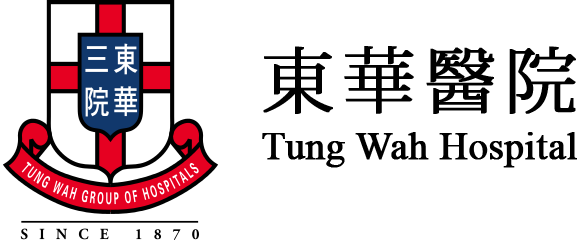Conjoint Committee For Recognition Of Training In Gastrointestinal Endoscopy

Committee
The Conjoint Committee for the Recognition of Training in Gastrointestinal Endoscopy is a National Body comprising representatives from the Gastroenterological Society of Australia, the Royal Australasian College of Physicians and the Royal Australasian College of Surgeons. The Committee has responsibility for the provision of guidelines relevant to training in endoscopic procedures and the maintenance of a register of specialists who have completed an appropriate training program.
Purpose
The major purpose of the Conjoint Committee is to provide guidelines for trainees in Advanced Training Programs. All endoscopists previously recognised in upper gastrointestinal endoscopy and colonoscopy by the Gastroenterological Society of Australia will be included in an upgraded file maintained by the Conjoint Committee. Endoscopists beginning training in endoscopy should register their training prospectively with the Conjoint Committee and record their training according to the new guidelines on the log books supplied, and must complete a minimum experience before they can be assessed by a Supervisor recognised by the Conjoint Committee. Trainees applying for recognition of training should forward the log books of their experience together with a Supervisor's report attesting to the candidates competence. The Supervisor / referees should be recognised by the Conjoint Committee in the particular type of endoscopy, or be known to be of equivalent standard. The Conjoint Committee will meet twice yearly and will forward results of the outcome of each application to the applicant and the relevant Specialist Society.
Guidelines
The following recommendations are based on current literature data of "learning curve experience".
Numbers apply only to those procedures performed unassisted, but under supervision.
Logbooks should include both assisted and unassisted procedures. This includes all attempts, both successful and unsuccessful.
Principles
-
Appropriate facilities for training in endoscopy should be available in major hospitals.
-
Exposure to endoscopic procedures should be available to all trainees, both physicians and surgeons.
-
Training implies an expression of vocational ambition in gastroenterological medicine and surgery in an Advanced Training Program.
-
The Committee recommends that gastroscopy and colonoscopy procedures in children thirteen (13) years of age and under, should only be performed by those who have satisfied the training requirements for paediatric endoscopy.
-
Cognitive and interpretive skills combined with a clear understanding of the role of endoscopy in patient management are as important as technical skills. This includes attendance at radiological and histopathological teaching sessions and relevant operations.
-
It is recommended that endoscopists understand the principles and practice of cleaning and disinfection of modern endoscopic instruments, as outlined in the current edition of "Infection and Endoscopy".
-
It is recommended that appropriate training and accreditation in fluoroscopic theory and practice be obtained.
-
The candidate must complete the specified minimum number of procedures under supervision before the supervisor may consider assessing competence.
-
A satisfactory report from the supervisor will be required at the completion of the training program. The supervisor should attest that the candidate is competent to perform the endoscopy and specific procedures safely and expeditiously, plus be able to competently integrate indications for endoscopy and endoscopic findings and therapy into patient management, be able to understand risk factors, recognise and manage complications and be able to recognise personal and procedural limits.
-
Recognition of a satisfactory endoscopy training will normally be given at the completion of the Advanced Training Program.
-
The Committee encourages successful applicants to maintain continuing medical education in the field of endoscopic practice and to regularly audit their own endoscopic practice.
Specific Requirements
Log Book
Details of all cases attempted, including those not successfully completed, must be recorded prospectively in the log books provided. These details include indications, complications, degrees of success and time taken. The time taken is recorded as a guide for the supervisor and is considered to be much less important than the successful completion of a procedure with minimal discomfort for the patient and no complications.
Upper Gastrointestinal Endoscopy
Trainees should perform at least 200 complete examinations independently but with supervision, which should include at least 25 emergency and/or therapeutic procedures.
Paediatric Upper Gastrointestinal Endoscopy
Trainees should perform at least 200 complete examinations performed independently but with supervision. Of these, at least 100 should be on paediatric patients with paediatric supervision.
ERCP
Trainees should have previous recognition of training in upper gastrointestinal endoscopy and complete a total of at least 200 ERCP's, unassisted, on patients with intact papillary sphincters, of which at least a minimum of 80 of these must be sphincterotomies with supervision. A minimum of 60 stents and /or nasobiliary drains should be inserted during training.
Cannulations performed on patients with previous sphincterotomies or stents should be recorded in the log book but not counted as a successful completed ERCP for gaining numbers.
Colonoscopy
Trainees should perform at least 100 unassisted and complete colonoscopies in intact colons under supervision (at least to the caecum and preferably into the ileum) including at least 30 snare polypectomies. A success rate of at least 85% for intubation of the caecum (and preferably into the ileum) should have been achieved on the completion of training.
Paediatric Colonoscopy
Trainees should perform at least 100 unassisted and complete total colonoscopies under supervision, (at least to the caecum and preferably into the ileum) with at least 75 paediatric procedures under paediatric supervision, with some polypectomy experience. A success rate of at least 85% for intubation of the caecum (and preferably into the ileum) should have been achieved on the completion of training.
Cleaning and Disinfection
It is required that a minimum of 15 instruments be cleaned under supervision by an experienced endoscopy nurse. This should be recorded in the log book. See current edition of "Infection and Endoscopy" for guidelines.
Supervision
The Supervisor should:
be a senior person in an active Unit;
be experienced in the form of endoscopy for which application is being made;
be recognised by the Conjoint Committee in the particular type of endoscopy, or be known to be of equivalent standard;
have personally supervised some of the applicant's training.
Application
Applications must be lodged on the official form. Only original documents will be accepted (no faxed copies).
Fee
A processing fee of A$100 for each application for a single procedure and A$50 for each additional procedure type shown on that same application
The Conjoint Committee meet twice a year in April and November.
The close for receipt of applications to be dealt with at these meetings is 31 March and 31 October of each year. Applications received after this date will be held until the following meeting.
Application forms and additional information are available from the:
Honorary Secretary
Conjoint Committee for Recognition of Training in Gastrointestinal Endoscopy
145 Macquarie Street
Sydney NSW 2000
Australia
| Telephone: | (02) 9256 5454 |
| Fax: | (02) 9241 4586 |
| Email: | gesa@racp.edu.au |
Checklist Of Forms Required
- Application for Recognition of Training (Green form - separate for each procedure)
- Training Supervisor's or Referee's Report (Cream form)
- Completed log book on Gastroscopy, Colonoscopy, ERCP, Paediatric Upper gastrointestinal endoscopy (Separate forms for each procedure)
- Completed summary sheet on Gastroscopy, Colonoscopy, ERCP, Paediatric Upper gastrointestinal endoscopy (Separate forms for each procedure)
- Endoscopy Cleaning and Disinfection form
- Fee: Recognition of one procedure A$100, two procedures A$150, three procedures A$200
A sample of the forms may be obtained from Kitty at K14N.












